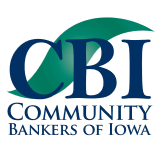| by Paul Waltz, President & CEO - SHAZAM The debate over regulating the payments industry has become more important than ever with vigorous activity around regulatory rollback and repeal. Preventing price fixing and regulatory overreach in the banking profession are important considerations, but preserving the interest of community banks and credit unions should be at the heart of the debate. In recent weeks, rhetoric supporting the idea that efforts to repeal Dodd-Frank should include a complete repeal of The Durbin Amendment has dominated the news. Much of the chatter is focused on pricing controls imposed under Durbin, with no consideration or little understanding of the second unaffiliated network requirement provision and prohibition on routing restrictions, which protects competition in the debit payments market. What bankers know, and some of the op-ed authors have forgotten, is the best way to keep your costs in check is to make sure there is healthy competition between providers. The two unaffiliated network requirement and prohibition on routing restrictions do exactly that. They preserve the right to choice and flexibility for both bankers and merchants, and diminish influence that entities with significant market power would leverage to create longer-term damage in the market. |
| It is simply not true to suggest routing choice is only a benefit to merchants. The contention that merchants hold the only choice in routing a transaction falls apart when one simply turns over their debit card to see, plainly, it’s the bank or credit union that chooses its network partners. So, what happens if that choice for the banks and credit unions is taken away? Without routing choice, smaller institutions, in particular, have no protection against punitive fees or costly brand mandates, and they will see costs go up sharply. That erodes interchange profit and creates a payments ecosystem where innovation is stifled. The introduction of chip cards and tokenization like ApplePay™ or SamsungPay™ have, virtually overnight, inserted proprietary technology into what was an open, standards-based payments system. After the initial rollout of chip clearly showed undue influence of routing; the Federal Reserve had to step in and clarify rules to ensure compliance with the law. What may be most puzzling is the effort by some to dismiss the safest transaction in the entire system, the PIN-based debit transaction. Globally, the largest networks extoll the security benefits of PIN, and advocate its use. One has to ask, then, “Why would anyone argue that PIN is harmful to community financial institutions and to consumers here in the U.S.?” As a network and processor owned by community banks and credit unions, SHAZAM isn’t supportive of government price controls, even though most of our participants aren’t affected by Durbin’s interchange caps. However, we feel it’s critical community banks and credit unions maintain the benefit that comes from the requirements there be at least two unaffiliated routing choices for debit transactions along with the prohibition on routing restrictions. The competition in the U.S. for debit processing services has allowed for innovation over the last 40 years. In addition, it serves as one of the last lines of defense for community financial institutions to have choice and flexibility, and enables their participation in electronic payments. If the protection provided by Durbin is lost, the bank or credit union in your hometown may be significantly harmed. The dual-routing requirement and prohibition on routing restrictions in the Durbin Amendment protect the entire ecosystem from falling victim to those whose only motivation is their own bottom line. |


 RSS Feed
RSS Feed